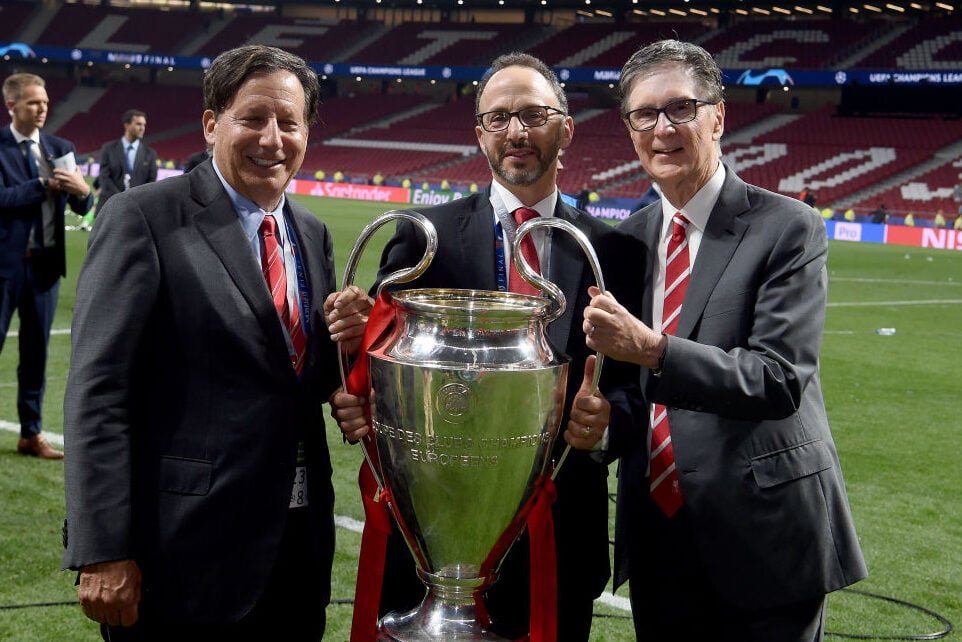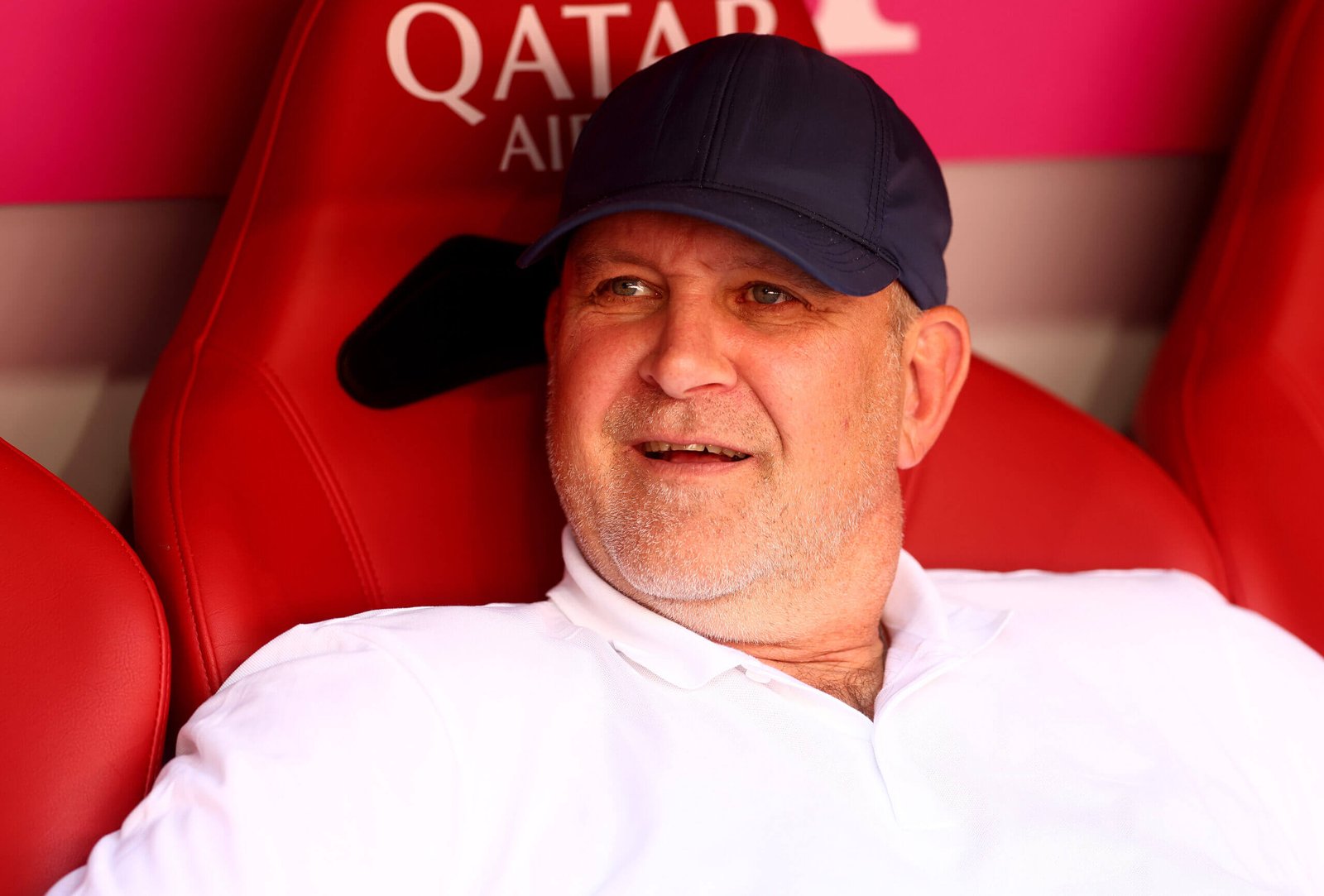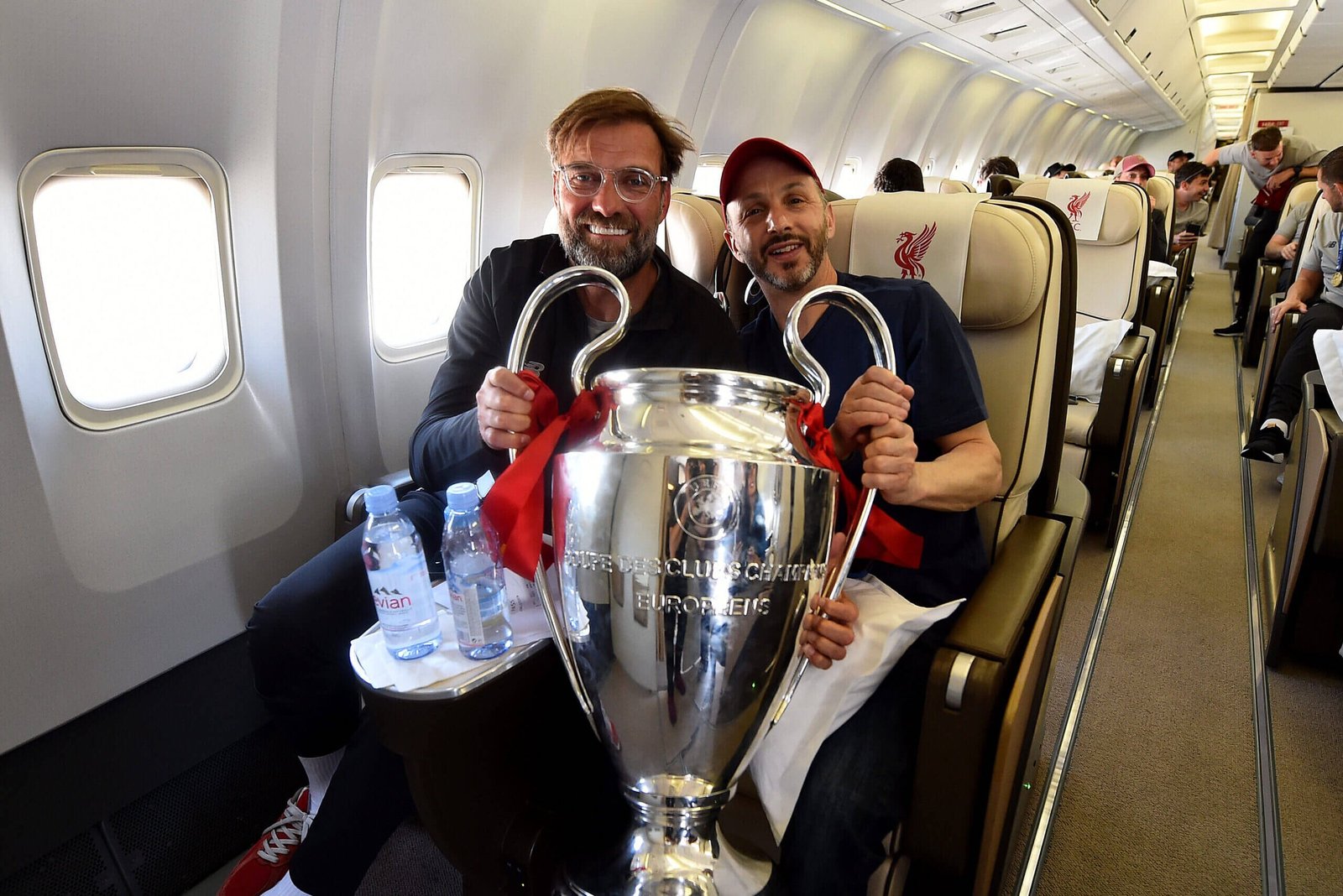It was Mike Gordon who, back in the autumn of 2015, began positioning Liverpool back on course with a phone call.
Jurgen Klopp and his agent, Marc Kosicke, were both invited by the president of Fenway Sports Group (FSG) to join him in Manhattan for a clandestine meeting and, once together in a room, the future became clear for all. Klopp was made for Liverpool, just as they were for him.
Gordon is credited as the man who first convinced Klopp to lead Liverpool over eight years ago, beginning a decorated reign that will finally end this summer, with the German admitting that his batteries are drained.
It leaves Liverpool facing their biggest decision in almost a decade and, just as it was when a successor to Brendan Rodgers was being sought, Gordon is occupying a pivotal role as Anfield’s quiet kingmaker.
Gordon, who is seldom seen at Anfield and even less frequently heard from, will choose a new manager in consultation with John W Henry and Tom Werner but the senior figure Klopp considered “the LFC man” in FSG will be the one leading this pivotal recruitment. That big, almost unenviable, call will be Gordon’s to make.
Jurgen Klopp signs his new contract with Mike Gordon (left) and assistant sporting director Julian Ward in 2022 (Andrew Powell/Liverpool FC via Getty Images)
The search has already begun after Klopp, 56, informed Liverpool’s owners of his intention to quit his post as far back as November and, according to chief executive Billy Hogan, it will mirror that of 2015. “We will go through that process as we have done in the past and the same process that brought us Jurgen almost nine years ago,” said Hogan, when sat alongside Klopp last Friday. “It is something we will do in private with the people here, with our owner Mike Gordon in particular.”
Gordon has already been turned down by Michael Edwards after offering the former sporting director the chance to return to Liverpool or FSG in a senior role overseeing the restructuring process.
Every Premier League club has changed its manager since Liverpool last did in 2015 (the majority several times over) but take Hogan at his word and nothing will have changed in the pursuit of a new manager. Data will play its part, as will the need to work within a sustainable model. And then it will be Gordon who looks the candidates in the eyes, just as he did with Klopp in New York.
Gordon would rather he did not need to walk this road over the coming months. In his contribution to the club statement that confirmed Klopp’s exit, he spoke of his “enormous respect, gratitude and affection” for the 56-year-old.
For all that they occupy opposite ends of the social spectrum – Klopp is extroverted, Gordon reserved – they have become the closest of allies. It is said to have become more a friendship than a professional relationship. As Klopp put it in 2018, “Mike is my person.”
But not for much longer. Gordon is now responsible for shaping what he has called a “future without Jurgen” and ensuring the separation does not turn out to be as painful as some fans may fear it could be.
Gordon might have put his name to quotes thanking Klopp on Friday morning but he was never likely to be the one that sat next to Liverpool’s outgoing manager during a press conference. That was left to Hogan, the public-facing figure in the club’s hierarchy.
Gordon remained invisible. In a year that sees the Liverpool director celebrate his 60th birthday, he is happiest operating away from public scrutiny. He has never given an interview to the open media since FSG arrived in 2010 and typically only interacts with a close circle of senior figures at Liverpool.
Most of his time is spent in Boston, where he lives a short distance away from Henry in Brookline, Massachusetts. Working days are mostly spent in an unassuming office close to Fenway Park, home of FSG’s original sporting interest, the Boston Red Sox.
Gordon, who hails from Milwaukee, has been a partner in FSG since 2001, then known as New England Sports Ventures. Enough money had been made from his time at Vinik Asset Management, an investment firm he founded with Jeff Vinik in the mid-1990s, for Gordon to buy into FSG and, over time, his influence has grown alongside Henry and Werner.
Henry has called Gordon “one of the brightest financial minds” in the U.S. and, as FSG’s owner outlined to the Boston Globe in 2015, the figure best suited to running Liverpool. “He is by far FSG America’s most knowledgeable person concerning soccer and is involved on the football side daily in constant communication with the members of our football committee and our manager,” Henry said.
Liverpool has been Gordon’s baby since 2013. He was responsible for promoting Edwards to technical director and then sporting director, and once Klopp was hired as Rodgers’ successor in 2016, the trophies began to flow.

(Right to left) John W Henry, Mike Gordon and Tom Werner celebrate the 2019 Champions League win (John Powell/Liverpool FC via Getty Images)
Liverpool went from an eighth-place finish in 2016 to title winners in 2020, and conquered Europe in 2019. Gordon was pictured alongside Klopp, posing with the Champions League trophy, when flying back to John Lennon Airport. The bond was very real.
They had big wins in the transfer market, such as selling Philippe Coutinho to Barcelona for a total package of £142million ($180m by today’s rates) in 2018. It was a sum then used to buy Virgil Van Dijk and Alisson, arguably two of the most transformative signings in the club’s modern history.
Things have never quite been the same for Gordon, though, since Edwards officially stepped down from his role at the end of the 2021-22 season.
Julian Ward, considered the natural heir to Edwards, walked away after just one season in the role of sporting director, leaving Liverpool to appoint Jorg Schmadtke as a replacement on a short-term deal last summer. Schmadtke’s exit at the end of this month was confirmed on the same day Liverpool announced Klopp’s summer exit, presenting Gordon – and FSG – with two enormous voids to fill before the 2024-25 campaign. It is said Gordon speaks almost daily to Liverpool’s manager, sporting director and chief executive yet two of those are departing.
That Gordon remains in his post has not always been taken for granted. As recently as November 2022, in the wake of FSG stating its willingness to sell some or all of its shareholding in the club, it was suggested Gordon would be “taking a step back” from his role, passing many of his day-to-day duties on to Hogan.
A U-turn on those plans to sell brought Gordon back into the fold and last March it was confirmed he remained “fully committed” to Liverpool.
“He did take time off for a while this winter, but is a long way off from retirement,” Henry told the Liverpool Echo newspaper last March.
Ten months on, Gordon has to navigate Liverpool through six months of turbulence.
The priority will be a long-term solution to the sporting director headache that has seen Edwards, Ward and Schmadtke leave within two years. Klopp’s long goodbye at least affords time to work on his replacement.

Jorg Schmadtke will also need to be replaced at Liverpool (Lars Baron/Getty Images)
The process will not change. As FSG have shown with its appointment of managers with the Boston Red Sox, including the World Series winners Terry Francona and Alex Cora, experience will not be the greatest consideration. Data will be used to pick out managerial strengths and potential, with support coming from Liverpool’s director of research and Harvard University graduate Will Spearman. It is here, in the numbers, where Gordon thrives.
That is not to conclude his approaches are binary. The character of Klopp’s successor will play its part, with Gordon acutely aware that Liverpool need a manager capable of carrying an enormous weight of expectation. There will also need to be an acceptance of Liverpool’s – and FSG’s – methods, placing faith in youth when unable to match the Premier League’s biggest spenders.
FSG’s model, however, has ultimately worked because of Klopp. Liverpool’s net spend in the transfer market since his arrival has been in the region of £360million, or £40m for every season he has spent at Anfield. Klopp’s skill and the stability he delivered masked that frugality in a period that saw Manchester United rack up a net spend of £960m without winning nearly as much. Manchester City and Chelsea, too, have committed more than £800m each in their pursuit of silverware during Klopp’s reign.
The closer comparison for net spending over the last nine years is West Ham United, a club that has not finished higher than sixth since the turn of the century.
Liverpool’s spending power is likely to increase now that the expanded Anfield Road Stand, which is due to open soon, will offer the stadium its biggest capacity for more than 60 years, at around 61,000. A probable return to the Champions League next season will also boost resources.
Gordon called it “business as usual” when Klopp was confirming his impending exit last week but the reality is very different. Few roles at the top of the English game face a more daunting set of challenges.
Liverpool have vacancies for their biggest roles and it is Gordon tasked with finding suitable replacements. The club’s prospects depend on it.
(Top photo: Andrew Powell/Liverpool FC via Getty Images)
Read the full article here


